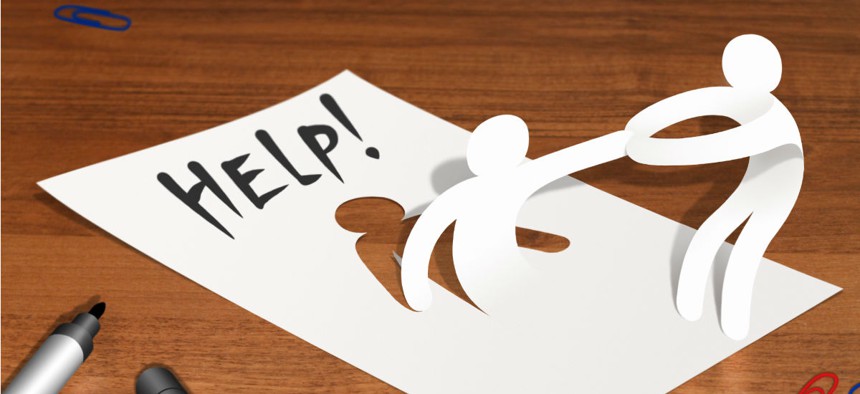
Aidar/Shutterstock.com
How to Get What You Really Need (and Make Other People Happy Too)
It's all in the way you ask for help.
No matter how hard they can be to say, four simple words, used correctly and with the right intent, can make a powerful impact on your profession, your life -- and especially on other people.
Here's how. When you need help, just say these four words: "Can you help me?"
And then pause for a moment. Don't say anything else.
Here's why.
We're not kids anymore. We're adults. We're smart, experienced, and savvy. We've accomplished things. We've earned our place in the world.
So when we ask for help we also tend to unconsciously add image enhancers. For example, if I need help with a presentation I might go to someone and say, "I'm giving a TED Talk next week and my slides need a few formatting tweaks."
The problem is that wording frames and signals my "importance" and ensure my ego is protected. OK, I may need a little assistance with a trivial little thing like a PowerPoint layout, but still: I am giving a TED Talk. I have important stuff to say. I am the big dog in this particular hunt.
Plus I haven't really asked, I've stated. (When you're in charge and accustomed to directing others, turning a request into a directive is a really easy habit to fall into.)
Here's a better way:
1. When you need help -- no matter the kind of help you need or the person you need it from -- take the bass out of your voice and the stiffness out of your spine and the captain out of your industry and simply say, with sincerity and humility, "Can you help me?"
I guarantee the other person will say, "Sure," or, "I can try," or, "What do you need?" No one will never say "No," even to a stranger. Why?
Simple: "Can you help me?" speaks powerfully to our instinctive desire to help other people. We all want to help. We can't help wanting to help.
2. Then make sure you don't frame your request. Don't try to protect your ego. Don't imply you place yourself above the other person. Don't make your request too specific. And don't say what you need.
Instead, say what you can't do. Say, "I'm awful at PowerPoint and these slides look terrible." Say, "We absolutely have to ship this order by Tuesday and I have no idea how to make that happen." Say, "I'm lost and I can't find my hotel."
When you ask that way, several powerful things immediately happen -- for the person you're asking:
One, you instantly convey respect. Without actually saying it, you've said, "You know more than I do." You've said, "You can do something I can't." You've said, "You have experience (or talents or something) that I don't have."
What you've said is, "I respect you." That level of regard is incredibly powerful -- and empowering.
Two, you instantly convey trust. You show vulnerability and admit to weakness.
What you've said is, "I trust you." That level of faith is incredibly powerful -- and empowering.
Three, you instantly convey you're willing to listen. You haven't tried to say exactly how people should help you. You give them the freedom to decide.
What you've said is, "You don't need to tell me what you think I want to hear. Please tell me what you think I should do." That level of freedom is incredibly powerful -- and empowering.
By showing you respect and trust other people, and by giving them the latitude to freely share their expertise or knowledge, you don't just get the help you think you want.
You might also get the help you really need.
And even though you might think asking for help places a burden on other people, it doesn't. You make it easier for others to ask you for help when they need it because you've shown it's OK to express vulnerability, to admit a weakness, and to accept you need their help.
And more importantly they gain the true sense of satisfaction and pride that comes from being shown the respect and trust we all deserve but so seldom receive.
And afterwards you get to say two more incredibly powerful words: "Thank you."
And then everyone wins -- which is how it should always be.
Jeff Haden is a writer, speaker, LinkedIn Influencer and contributing editor for Inc. His books include TransForm: Dramatically Improve Your Career, Business, Relationships, and Life . . . One Simple Step at a Time.
(Image via Aidar/Shutterstock.com)






